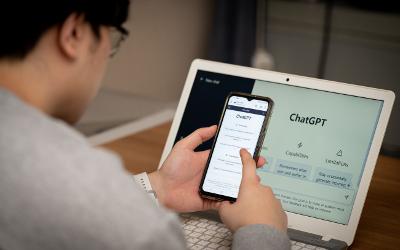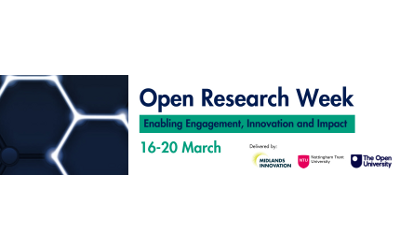Education report highlights challenges of complex learning environments

This year’s future of education report highlights 10 promising innovations facing learners and educators over the coming years.
The Innovating Pedagogy 2023 report, produced by academics in The Open University's (OU) Institute of Educational Technology and the Centre for Innovation in Learning and Teaching at the University of Cape Town, focuses on the challenges where learning takes place across a combination of physical and virtual spaces.
This is the 11th report in a series co-produced by the OU which researches innovations in teaching, learning and assessment.
The reports are intended for teachers, policy makers, academics, students, researchers, designers of educational technology, and for anyone who is interested in pedagogical innovation and how education is changing.
In her introduction to the report, lead author, Agnes Kukulska-Hulme, OU Professor of Learning Technology and Communication, says:
“This year we have ‘pedagogies using AI tools, ‘relational pedagogies’ and ‘entangled pedagogies of learning spaces’, along with approaches highlighting entrepreneurship and education in the Metaverse.”
She also jokes that the authors were briefly tempted to ask ChatGPT to write the report but (happily), it is not capable of doing so.
The potential for ChatGPT, the best-known Generative AI tool, to change educational practice is discussed in the section on Pedagogies using AI tools, as well as raising many issues that will need to be addressed, not least, the possibility of students handing in work generated by these tools.
The other nine trends are:
-
Challenge based learning
Rising to challenges to benefit individuals and societies
-
Multimodal pedagogy
Enhancing learning by diversifying communication and representation
-
Entrepreneurial education
Students as change agents in society
-
Metaverse for education
Educational opportunities through fully immersive 3D environments
-
Seeing yourself in the curriculum
Pedagogies enabling students to see themselves in the curriculum
-
Podcasts as pedagogy
Embedding podcasts in teaching and learning practices
-
Entangled pedagogies of learning spaces
Connecting technology, pedagogy and all elements of a learning context
-
Pedagogy of care in digitally mediated settings
Prioritising the well-being and development of students
-
Relational pedagogies
Working relationally in and across disciplinary and professional boundaries
Commenting on the overall report, Professor Kukulska-Hulme said:
“All this seems to represent what can be described as a trend towards “a multiplicity of technologies, methods and modalities” available for a learning experience, meaning that several media and modes of communication and delivery can support teaching, learning and assessment across a range of contexts and spaces.
“It makes for a potentially complex teaching and learning environment where student activity needs to be ‘orchestrated’, as explained in our section on ‘Entangled pedagogies of learning spaces’ in this report. It has, however, the advantage of offering more options to suit different circumstances and student needs and it can support combining formal teaching and independent or informal learning.“
You may also be interested in:
Contact our news team
For all out of hours enquiries, please telephone +44 (0)7901 515891
Contact detailsNews & articles

Open Research Week to spotlight innovation in 2026
Open Research Week will return from 16–20 March 2026, uniting Open University researchers and partners to explore how open practices drive engagement, innovation and societal benefit.